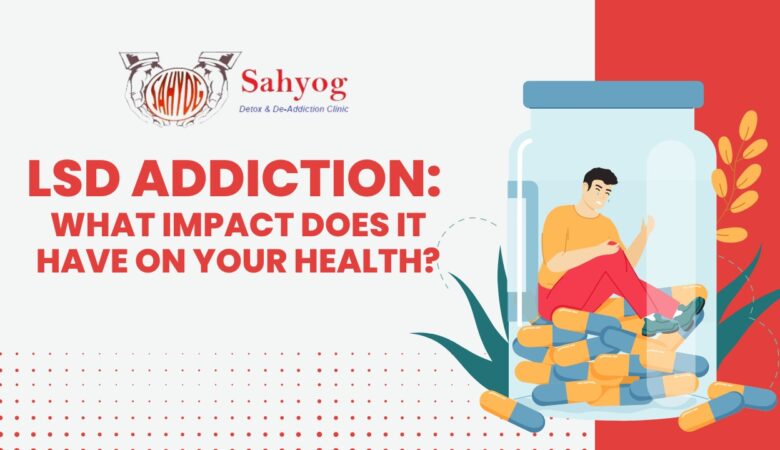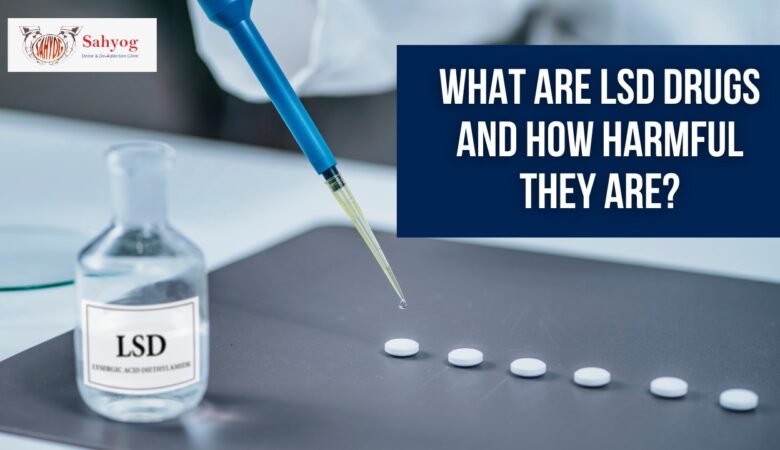LSD Addiction: What Impact Does It Have On Your Health?
LSD addiction can have a serious impact on your health, both physically and mentally. Here, we’ll take a look at some physical side effects of LSD abuse, as well as the psychological consequences of addiction. What is LSD? LSD (lysergic acid diethylamide) is a psychoactive drug that was first synthesized in 1938. It is used mainly as a recreational drug, but can also be used to treat various medical conditions. LSD is classified as a Schedule I drug by the US Drug Enforcement Administration. LSD is most commonly absorbed through the mouth, and it can cause changes in mood and perception. It is also known to be addictive, and long-term use can lead to serious mental health problems, such as addiction. LSD is a type of drug that is made from a chemical called Lysergic acid. It is often used as a recreational drug because it can produce feelings of happiness, euphoria, and well-being. However, LSD can also have negative effects on your health if you use it repeatedly or in high doses. One study found that people who use LSD regularly are more likely to have problems with their mental health, including anxiety and depression. LSD is also known to have a long-term impact on your memory and cognitive abilities. Another study found that people who use LSD are also more likely to have problems with their physical health, including heart problems and schizophrenia. So, what impact does LSD addiction have on your health? While there is no easy answer, using LSD regularly can be harmful to your health in many ways. How Does LSD Affect the Brain? LSD is a drug that is known to produce effects such as altered perceptions, changes in mood, and altered sensory experiences. LSD addiction can have a significant impact on an individual’s health and well-being. It can cause psychiatric problems, including severe panic and anxiety attacks, hallucinations, and delusions. Additionally, LSD use can increase the risk of developing other mental health conditions, such as addiction to other substances. It can also damage the brain in ways that may have long-term effects. LSD can cause changes in brain function, such as impairments in memory and learning, changes in mood and personality, and changes in coordination and balance. LSD is also known to be addictive, and long-term use can lead to dependence and addiction. There is still much unknown about the long-term effects of LSD use on the brain, and further research is needed to better understand the risks and benefits of this drug. LSD affects the brain in several ways: First, it increases activity in certain areas of the brain, including the serotonin and dopamine receptors. This can cause feelings of euphoria and happiness, as well as increased sensations of creativity and pleasure. Second, LSD can also increase activity in the underlying networks of brain cells. This can lead to changes in perception and memory, as well as changes in mood and behavior. What Are the Effects of LSD Addiction on a Person’s Health? LSD is a Class A drug in the UK and is highly addictive. It can have serious health consequences if used regularly and can cause problems with your mental health, memory, and cognitive function. There are a number of long-term effects of LSD use that are still being studied: for example, it has been linked to problems with your brain’s serotonin system, which can lead to depression and other mental health issues. LSD also has short-term effects on physical health. For example, it can increase heart rate and blood pressure, and cause hallucinations and paranoia. It’s important to note that the long-term effects of LSD use are still being studied, and it’s not known for sure what all the consequences will be. So, it’s important to be aware of the risks before using LSD and to seek medical advice if you’re concerned about any long-term effects. There are also some potential dangers associated with using other drugs while you’re on LSD, such as mixing them and taking too much at once. Therefore, it’s important to be careful and know what could happen if you take LSD with other drugs. If you’re considering using LSD, it’s important to be aware of the risks and talk to a healthcare professional about them. If you’re concerned about any long-term effects of LSD use, it’s important to speak to a doctor or pharmacist. How Do You Know If You’re Addicted to LSD? If you’re using LSD frequently, and it’s causing you problems in your life, then you may be addicted to the drug. Here are five ways to know if you’re addicted to LSD: You’re using LSD more than you intended to. You’re using LSD despite knowing that it’s causing you problems. You feel a need for LSD even when you don’t use it. You can’t control your use of LSD. Your life has become unmanageable because of your LSD addiction. If you meet three or more of these criteria, you may be addicted to LSD. If you’re addicted to LSD, you may find it difficult to quit using the drug. In addition, LSD addiction can lead to other problems, such as problems with your mental health and relationships. If you think you may be addicted to LSD, please talk to a doctor or therapist. If you’re addicted to LSD, it’s important to get help. There are many programs available that can help you quit using LSD and restore your life. If you’re using LSD, it’s important to talk to a doctor or therapist. What Can You Do If You Have LSD Addiction? If you are addicted to LSD, you need to seek professional help. There is not much that you can do on your own to recover from LSD addiction. The most important thing that you can do is get help from a detox center or rehab facility. LSD addiction can have a serious impact on your health, and you need to get help if you want to recover. Also, make


